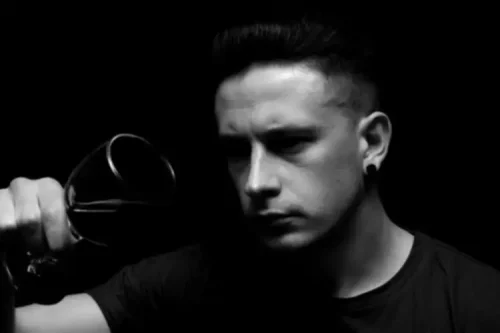
Engaging in appropriate lifestyle habits can also help improve alcohol shakes. Exercising regularly, eating a balanced diet, and managing stress with yoga, meditation, or other relaxation techniques can play an important role in reducing tremor frequency. Alcohol withdrawal may cause shakes when the effects of alcohol on the nervous system wear off, and the brain becomes overwhelmed by activity in the nervous system. This may lead to the brain sending incorrect messages to the nerves in the hand, making the hands and fingers shake.
Can I prevent shaking after drinking coffee?

It kicks in while your hands are doing something, but goes away when they’re not. There’s no clear cause, but it’s sometimes traced to a change in a gene. If they get in the way of everyday tasks or shaking in the morning after drinking your job, you may need medicine, occupational therapy, or surgery. How you stop alcoholic shakes is going to depend heavily on why the shakes are happening. As important as trusted support is during detoxification and your treatment program, it is equally important after treatment. Enjoyable activities relieve stress and cravings, which in turn helps to reduce alcohol shakes.
Essential tremor
- If you want to change your relationship with alcohol, speak with a professional to see how you can do it safely and effectively.
- On the other hand, if you have severe withdrawal that progresses to seizures or delirium tremens, hospital treatment will likely be warranted.
- If you are experiencing alcohol withdrawal, seek medical attention immediately, especially if you’ve been drinking heavily for a long time.
- The National Academies of Sciences, Engineering, and Medicine recommend a lifetime daily practice of consuming about 15 cups of fluids for men and about 11 cups of fluids for women.
- You should combat alcohol withdrawal in a professional rehab center, as quitting alcohol completely on your own can result in dangerous withdrawal symptoms.
This sudden shift can overstimulate the nervous system, leading to tremors or shaking. Alcohol consumption significantly impacts the brain’s neurotransmitter systems. When alcohol is consumed, it acts as a depressant, inhibiting glutamate receptors and enhancing GABA (gamma-Aminobutyric acid) receptors.
- Waking up shaking or trembling can be a troubling experience, especially when you don’t know what’s causing it.
- Benzodiazepines are used to treat withdrawal symptoms such as tremors but must be used under close medical supervision, as they can be dangerous.
- Other conditions don’t cause essential tremor, but essential tremor sometimes is confused with Parkinson’s disease.
- This imbalance is the cause of tremors or shakes, as the brain tries to send coordinated signals to muscles.
- The amount of coffee that’s considered “too much” varies significantly from person to person, based on factors such as body weight, caffeine tolerance, and overall health.
Personalized Programs Designed to Fit Your Recovery Needs.

But for a post-workout shake where faster protein absorption is preferred, sticking to just water is likely your best option. The type of protein you choose will dictate how quickly or slowly it’s absorbed by your body. Whey protein hydrolysate is already partially broken down for your body and it can be quickly absorbed. Whey protein isolate and whey protein concentrate follow closely behind in terms of digestion speed. You’ll also want to eliminate foods and beverages that make you feel jittery.

It’s important to note that the severity and combination of symptoms during alcohol withdrawal can vary widely from person to person. While alcohol tremors are a common sign of alcohol withdrawal, not everyone undergoing alcohol withdrawal will necessarily experience them. Handshakes can be caused by various health issues, ranging from benign to life-threatening. Common causes include muscle weakness and muscle cramps due to dehydration, low blood sugar, nerve-related problems, and symptoms of alcohol withdrawal. Understanding the science behind shaking after drinking reinforces the fact that it’s more than just a temporary discomfort. It’s a symptom of a serious condition that requires attention and care.
Reach out now and start the healing process
As such, it’s important to take a step back and reflect when you notice alcohol tremor signs. But over time, excessive alcohol use leads to a decrease in natural GABA activity. So, when you stop drinking alcohol, the GABA receptors heroin addiction can’t do their job, and the central nervous system can become overactive.3 That’s when the shaking begins. Alcohol shakes may not always be cause for immediate alarm, but it’s worth understanding what’s going on if you or a loved one experiences tremors from drinking alcohol. With that in mind, we’re taking an in-depth look at what an alcohol tremor is and what to do if you notice it.
Experiencing shakes, tremors or seizures after drinking alcohol can be concerning. Find out what causes this withdrawal symptom, how to manage alcohol shakes and when to seek help. Alcohol shakes, also known as tremors, are a common sign of alcohol withdrawal. They typically occur when someone who regularly drinks significant quantities of alcoholic beverages stops drinking, and the effect of alcohol starts wearing off. To alleviate shaking after drinking coffee, the first step is to identify your caffeine sensitivity and adjust your consumption accordingly.
We Accept Most Insurance Providers
The “New York Times” reports that excessive alcohol use is characterized by consuming more than 15 drinks per week for men and eight drinks per week for women. Drinking more than five drinks a day for men and more than four a day for women is also considered excessive. A sign that you’re dependent on drinking might be a daily routine that’s affected by or organized around your habitual drinking; for example, consistent tardiness at work because of hangovers. Fighting with your spouse, getting arrested for drinking and driving, and not remembering things you’ve said and done while drinking is also indicative of alcohol dependence.
